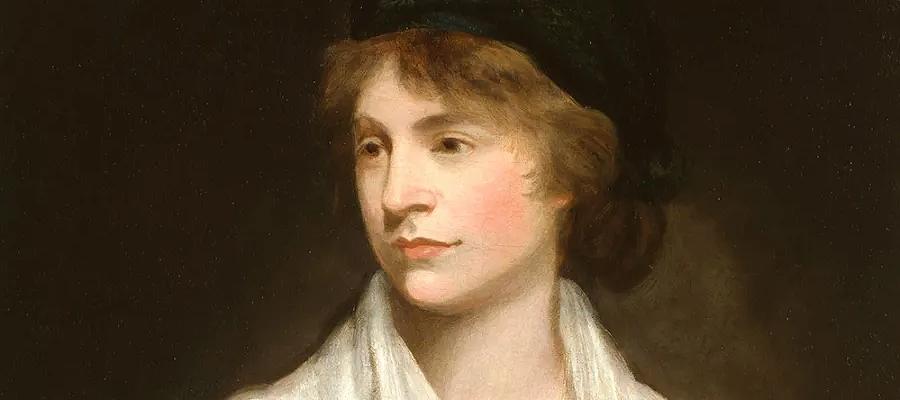Mary Wollstonecraft
May 12, 2024Mary Wollstonecraft is often labeled as a “liberal feminist” because of her concern for women’s rights and conceptions of freedom.

Mary Wollstonecraft was a fascinating philosophical figure, in part because she didn’t just write philosophical treatises: just like our previous Wise Woman, Margaret Cavendish, she also wrote pamphlets and novels. And she campaigned not just against sexism but against all kinds of inequality, including slavery and monarchy. She was a (qualified) fan of the French Revolution, thinking that if we don’t all have social and economic equality, none of us can be genuinely happy—or even good.
That last thought may sound puzzling. It's true that if you’re oppressed it’s hard to be happy, and if you’re oppressing others it’s hard to be good. But why can't an oppressed person be good?
Wollstonecraft isn't denying that oppressed people can be virtuous; her thought is only that they don't get the chance to do the most good they're capable of, the chance to "max out their virtue points" by making a significant contribution. Society, says Wollstonecraft, owes everyone that opportunity. But it gives that opportunity only to some, and not to others.
One important step on the way to making a contribution to society is understanding the world around you: “virtue, to deserve the name, must be founded on knowledge.” And while oppressed people can know some things, they’re prevented from knowing the important stuff, things you’d need to know if you’re going to make that contribution to society. When it comes to women, for example. Wollstonecraft said society makes them focus on frivolous matters, like next season’s frock. If that’s all you’re thinking about, it's going to hard to change the world. As a result, while women can certainly be kind to the people around them, they won’t have the opportunity to help people they don’t know: they’ll never get to be stateswomen, build a school, or develop a vaccine for smallpox. To make a real impact, women need power over their own lives.
Of course, power is not enough on its own, and neither is knowledge. (As Wollstonecraft herself said, “men, in general, seem to employ their reason to justify prejudices.”) But Wollstonecraft saw both as essential starting points. Set up a co-educational public school system, available to everyone; change society's vision of "appropriate" roles for men and women; give women control over their own lives, so they can maximize their potential and contribute to the common good—these would at least, she thought, be moves in the right direction.
It's remarkable to see just how much of Wollstonecraft's vision has come to pass, almost to the extent that we take it for granted. So, is her work done? Or are there more efforts we need to make, as a society, along Wollstonecraftian lines? Our guest will help us answer that—it's Sylvana Tomaselli from the University of Cambridge, author of Wollstonecraft: Philosophy, Passion, and Politics.